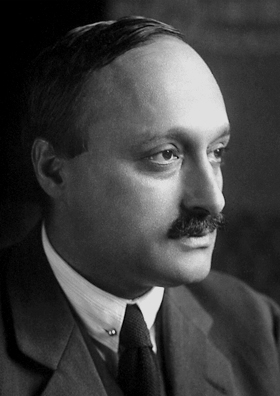James Franck (1882-1964) was a German physicist and winner of the 1925 Nobel Prize for Physics.
During the Manhattan Project, Franck served as Director of the Chemistry Division of the University of Chicago’s Metallurgical Laboratory.
He also served as chairman of the Committee on Political and Social Problems regarding the atomic bomb. The product of this committee was the Franck Report, released June 11, 1945, which recommended an open demonstration of the atomic bomb’s power in an uninhabited locality rather than dropping the bomb on Japanese cities.
Franck was upset by the use of the bombs and after the war switched fields and studied photosynthesis.
Scientific Contributions
He won the Nobel Prize in Physics for discovery of the laws governing the impact of electrons on atoms, which confirmed the Bohr model of the atom.
When Germany invaded Denmark in 1940, Hungarian chemist George de Hevesy dissolved the gold Nobel Prizes of Max von Laue and Franck in aqua regia to prevent the Nazis from taking them. After the war, the Nobel Society recast Franck and von Laue’s awards from the solution.
1882 Aug 26th Born in Hamburg, Germany.
1906 Received his Ph.D. in physics from the University of Berlin.
19111918 Lectured at the University of Berlin.
1917 While serving as a volunteer in the German Army, seriously injured in a gas attack. Awarded the Iron Cross 1st Class.
19201933 Professor of Experimental Physics and Director of the Second Institute for Experimental Physics at the University of Göttingen.
1925 Received the Nobel Prize in Physics.
1933 Nov To escape rising anti-Semitism, moved to the US.
19351938 Professor of physics at John Hopkins University.
1938 Became professor of physical chemistry at the University of Chicago.
19421945 Worked on the Manhattan Project as Director of the Chemistry Division at the University of Chicago’s Metallurgical Laboratory.
1945 Jun 11th Released the Franck Report, recommending that the bomb be demonstrated before being used.
19471956 Head of the Photosynthesis Research Group at the University of Chicago.
1955 Received Rumford Medal of the American Academy of Arts and Sciences for his work on photosynthesis.
1964 May 21st Died in Göttingen, Germany.





